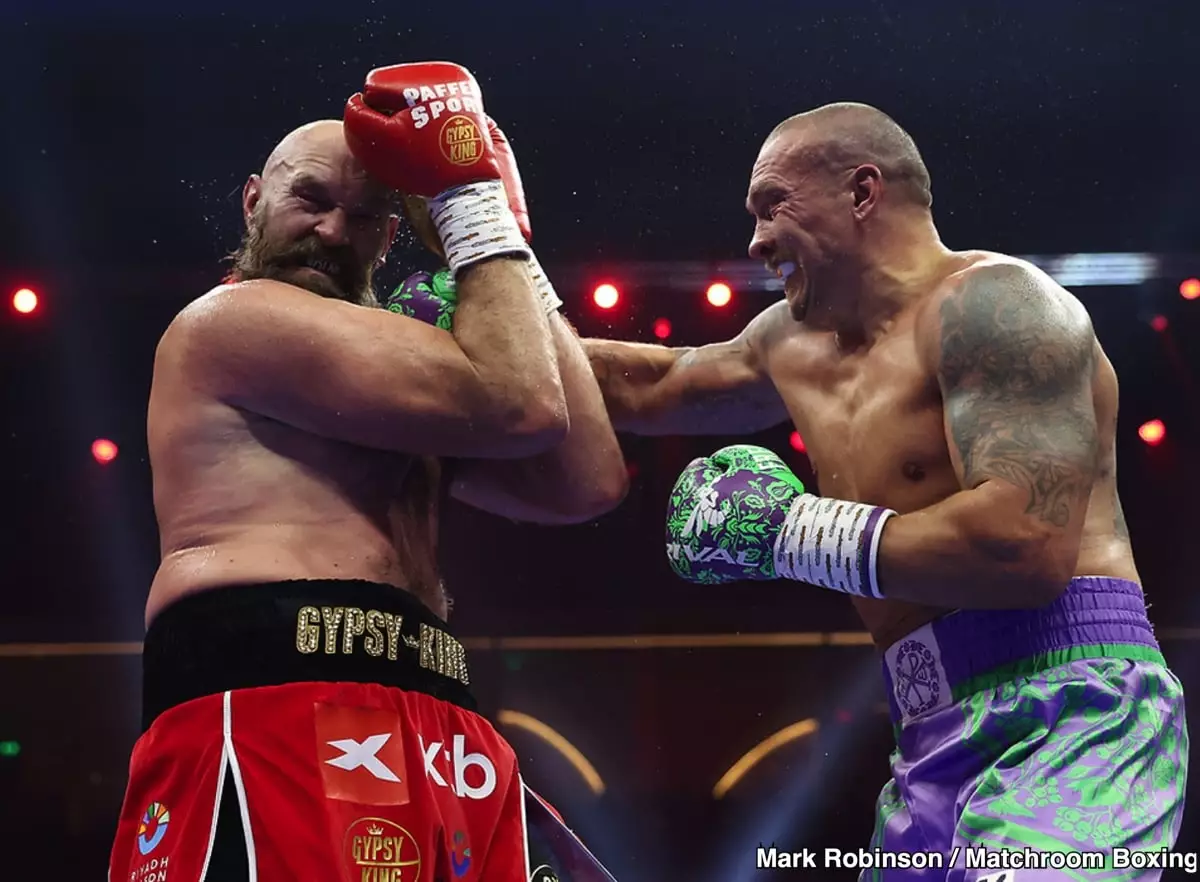In the wake of the highly publicized rematch between Oleksandr Usyk and Tyson Fury, the boxing world seems inundated with opinions. Many fans and commentators flocked to social media to voice their perspectives, often obscuring the nuances of the fight in favor of sensational narratives. Claims ranging from “Fury was robbed” to “the casual fan simply doesn’t understand boxing” dominate discussions, making it challenging to engage with the match’s finer points. The discourse often feels like a cacophony, drowning out the more reasoned analyses that players like Roberto Duran attempt to provide. Duran astutely pointed out the effectiveness of Usyk’s game plan and expressed his surprise that Usyk didn’t secure a stoppage victory, a sentiment that deserves deeper exploration.
Duran’s observations urge us to analyze the fight through the lens of skill and strategy rather than the emotional fervor that often drives sports conversations. While many resort to hyperbole, the reality is that Usyk executed a well-structured approach that capitalized on his speed and tactical acumen. It’s critical to recognize that, despite the uproar, the fight concluded in a manner that affirmed Usyk’s prowess in the ring.
Understanding the landscape of boxing commentary requires acknowledging the historical influences that shape narratives. The ghosts of past fights — especially pivotal matches like Usyk’s initial triumph over Fury — paint a complex picture. The first encounter showcased not only Usyk’s skill but also exposed vulnerabilities within Fury’s game plan that he and his supporters now seem eager to gloss over.
Recalling that initial victory on a sultry night in Saudi Arabia, Usyk’s defensive agility and combination punching were vital in securing the win. Despite claims from certain fans that Fury had been the victim of corruption, the reality was a decisive display of boxing intelligence from Usyk. Instead of fueling conversations steeped in fantasy, boxing analysis must pivot toward acknowledging the clear displays of skill that define match outcomes.
With the rematch, we saw Fury attempt to impose his size and strength, but Usyk’s strategic awareness allowed him to navigate through these challenges effectively. This dynamic highlights the ongoing battle between brawn and brains in boxing, where mastery often rests not just on physical attributes but rather on the ability to think several moves ahead in the ring.
In the aftermath of the rematch, the fallout has laid bare the significant divide in the boxing community. While some continue down the path of erroneous assertions, fueling social media wars, others seek a more balanced understanding of the fight. Observations from analysts often feel overshadowed by rampant fan hyperbole, reducing complex bouts to mere discussions of “who won” as if boxing were a linear sport devoid of multi-dimensional strategies.
The results of their second fight — marked by a unanimous decision in favor of Usyk — serve not only as a concrete outcome but also as a reflection of the contrasting perspectives inherent in boxing discussions. Despite the fairly clear scoring, allegations of widespread bias continue to circulate, demonstrating an underlying frustration among Fury supporters unwilling to accept the fight’s outcome. What’s concerning here is that this trend compromises the integrity of boxing analysis, turning debates into battlegrounds rather than platforms for thoughtful engagement.
As we contemplate what’s next for Usyk, the conversation naturally pivots toward potential opponents and future engagements. Given the geopolitical backdrop, Usyk’s aspiration for a homecoming fight in Kyiv genuinely resonates. It’s a narrative steeped in both personal and national pride that boxing fans would welcome. The question remains: who would be a fitting opponent that could engage Usyk fully?
Discussions surrounding a rematch with Daniel Dubois are prevalent, although Dubois’ upcoming challenges against top fighters could muddle this scenario. Alternatively, one might speculate about the relevance of a potential bout with Anthony Joshua, despite their mutual defeats at the hands of Usyk. A fight between the two, while compelling for some, may ultimately lack the stakes that fans desire.
In encapsulating the overlapping narratives of Usyk’s triumph and the lingering sentiments of Fury’s supporters, we confront a reality that belies the notion of boxing as a black-and-white affair. With the sport steeped in both historical significance and contemporary drama, the ghosts of past, present, and future continue to shape the heavyweight landscape. Let’s embrace a more measured discussion that may allow boxing enthusiasts to find meaning amidst the chaos of opinions. Ultimately, objective analysis should triumph over fervent emotional responses, paving the way for a more enriching boxing dialogue.


Leave a Reply